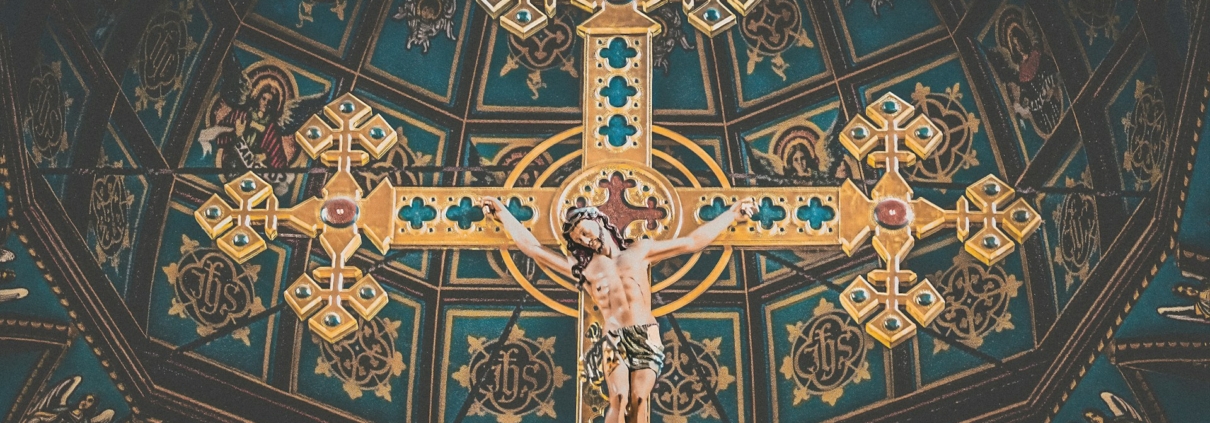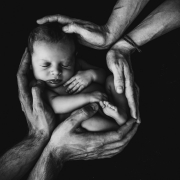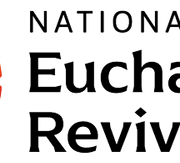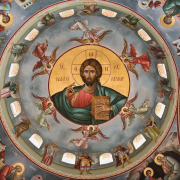Redeemed and Called by Christ
For the last several months of our journey through TOB, we have explored the effects of our first parents’ fall from grace. We explored the nature of their sin and how it disrupted the harmony they previously experienced with God, within themselves, with each other, and with the rest of creation. As a result, concupiscence (i.e., disordered desire) and shame became hallmarks of our human experience. Having reviewed the various aspects and causes of shame as well as its positive, protective value in a fallen world, we delved into the problem of shamelessness and the most notorious example of shamelessness today — pornography. It is now time, with the help of Pope St. John Paul II, to shift our gaze from our origin and fall to our redemption and call to glory.
Indeed, if the story of the human person and human love ended with sin, it would be a very bleak tale. Thanks be to God that He did not abandon us to the power of sin and death but fashioned a remedy for us out of our own humanity. Jesus Christ, the Son of God and Second Person of the Blessed Trinity, took on our human nature, becoming like us in all things but sin, suffered and died for our sake, and rose to eternal glory. As the fathers of the Second Vatican Council taught,
“He Who is ‘the image of the invisible God’ is Himself the perfect man. To the sons of Adam He restores the divine likeness which had been disfigured from the first sin onward. Since human nature as He assumed it was not annulled, by that very fact it has been raised up to a divine dignity in our respect too. For by His incarnation the Son of God has united Himself in some fashion with every man. He worked with human hands, He thought with a human mind, acted by human choice and loved with a human heart. Born of the Virgin Mary, He has truly been made one of us, like us in all things except sin” (Gaudium et spes, 22).
Christ indeed has united Himself with us, taking on our human nature in its entirety and uniting it with His divinity forever. In doing so, He has revealed to us anew our worth in God’s eyes and raised our dignity to an unprecedented level. As the Council fathers said, this dignity even includes the human body. Indeed, Pope St. John Paul II quipped, “Through the fact that the Word of God became flesh, the body entered theology… I would say, through the main door” (TOB 23:4). The human body has become theological, the meeting place between God and humanity.
By taking on our human nature, suffering and dying for us, and rising to eternal glory, Jesus has also opened the path to sanctity for us. Throughout His earthly ministry, He called His disciples to holiness of life. His preaching and example established the New Law of the Gospel as the standard for all human conduct, especially for those who bear the name Christian. This New Law “fulfills, refines, surpasses, and leads the Old Law to its perfection” (CCC, 1967). By giving us this law and empowering us to fulfill it with the grace of the Holy Spirit, Jesus provided the path and the means for all of us to achieve holiness and enter into eternal life.
Pope St. John Paul II frequently recalled the teaching of the Second Vatican Council known as the “universal call to holiness.” He adamantly taught that holiness — indeed, sainthood — is possible for each and every one of us and is, in fact, an essential aspect of everyone’s vocation. None of us are exempt from this call, nor is it impossible for us to achieve it with the abundant help of God’s grace. In TOB, he particularly explored the implications of Christ’s redemption, the New Law of the Gospel, and the call to holiness for the relationship between the sexes and our experience of spousal love. I invite you to continue this journey through TOB with me as we explore in subsequent articles the late pope’s precious insights into our moral life in Christ and the redemption of our bodies.
[3] Cooper, A. (1998). Sexuality and the Internet: Surfing into the new millennium. CyberPsychology & Behavior, 1(2), 187–193.
[4] Love et al. (2015). Neuroscience of Internet pornography addiction: A review and update. Behavioral Sciences, 5, 388-433.
Note: This article is part of a series of reflections on Pope St. John Paul II’s “Theology of the Body.”
Continue Reading: The Gift of the Moral Law
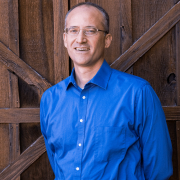
Written by, Dr. Andrew Sodergren, M.T.S., Psy.D.,
Director of Ruah Woods Psychological Services
(Article originally published in The Catholic Telegraph, September 2023 Issue, the official magazine of the Archdiocese of Cincinnati)

